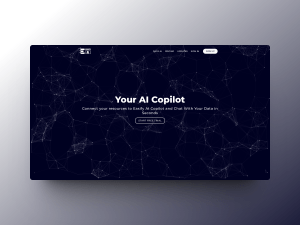Welcome to the era where artificial intelligence (AI) is reshaping the landscape of qualitative data analysis. In this age of information, the ability to derive meaningful insights from non-numerical data is a cornerstone of informed decision-making, and AI stands as a formidable ally in this endeavor. This blog explores the dynamic realm of AI qualitative data analysis, unveiling its applications, benefits, challenges, and future trends that promise to redefine how we perceive and harness qualitative data.
As organizations across sectors increasingly recognize the value of unstructured data, the role of AI becomes pivotal in unlocking its potential. From healthcare and market research to finance and education, the applications are diverse and transformative. We delve into the efficiency gains, accuracy enhancements, and scalability that AI brings to qualitative data analysis, shedding light on how it revolutionizes decision-making processes.
Join us on this exploration of the symbiotic relationship between AI and qualitative data, where the amalgamation of cutting-edge technology and human expertise opens doors to unprecedented insights and possibilities. Welcome to the future of data analysis—welcome to the world of AI qualitative data analysis.
Understanding AI Qualitative Data Analysis
AI qualitative data analysis represents a groundbreaking approach in deciphering non-numerical information, fundamentally altering the landscape of data interpretation. At its core, this methodology harnesses the power of artificial intelligence (AI) and machine learning algorithms to navigate and distill insights from intricate, unstructured datasets. The applications span across diverse sectors, from healthcare, where patient feedback is analyzed for service enhancement, to market research, utilizing sentiment analysis to gauge public perception.
The advantages are compelling: enhanced efficiency through accelerated analysis, heightened accuracy by mitigating human errors, and seamless scalability to handle vast data volumes. However, challenges such as data quality assurance and ethical considerations must be addressed. Looking forward, the integration of natural language processing (NLP) and the exploration of synergies with emerging technologies like blockchain promise to elevate AI qualitative data analysis to new heights. As organizations embark on this transformative journey, careful consideration and collaboration between human expertise and AI capabilities are paramount for unlocking meaningful insights.
Applications in Varied Sectors
The applications of artificial intelligence (AI) in qualitative data analysis span across diverse sectors, ushering in a new era of data-driven decision-making. In healthcare, AI plays a pivotal role in analyzing patient feedback, enabling healthcare providers to extract valuable insights for improving services, enhancing patient experiences, and optimizing healthcare delivery.
In market research, AI facilitates sentiment analysis in social media and customer reviews, providing businesses with real-time feedback on products and services. This not only aids in understanding consumer perceptions but also guides strategic decision-making to align with market trends.
The financial sector leverages AI in qualitative data analysis for risk assessment, fraud detection, and customer behavior analysis. This enables institutions to make informed decisions, mitigate risks, and enhance overall financial security.
Education benefits from AI by personalizing learning experiences through the analysis of student performance and engagement. Adaptive learning platforms powered by AI cater to individual learning styles, fostering improved educational outcomes.
From manufacturing to customer service, AI’s applications in qualitative data analysis are transformative, offering efficiency, accuracy, and insights that reshape industries and enhance their competitive edge. As AI continues to evolve, its impact on various sectors is poised to grow, driving innovation and efficiency across the board.
Benefits of AI in Qualitative Data Analysis
The benefits of employing artificial intelligence (AI) in qualitative data analysis are multifaceted and revolutionary. One key advantage lies in the realm of efficiency, as AI accelerates the analysis process, significantly reducing the time traditionally spent on manual data interpretation. This speed, coupled with the ability to handle large datasets, contributes to enhanced scalability, making AI particularly adept at addressing projects of varying sizes and complexities.
Moreover, AI brings a heightened level of accuracy to qualitative data analysis by minimizing the inherent biases and errors associated with human interpretation. Machine learning algorithms not only process information at unprecedented speeds but also adapt and learn from the data, ensuring more reliable and precise results.
Incorporating AI into qualitative data analysis workflows empowers organizations to extract deeper insights from complex datasets, fostering a data-driven decision-making culture. The combination of efficiency, accuracy, and scalability positions AI as a transformative force, reshaping how we approach and derive value from qualitative data in diverse fields, from market research to healthcare.
Challenges and Considerations
Despite its transformative potential, AI qualitative data analysis comes with its own set of challenges. Ensuring the quality of input data, addressing ethical concerns, and maintaining transparency in algorithmic decision-making are crucial considerations in implementing AI solutions.
Future Trends in AI Qualitative Data Analysis
The future holds exciting possibilities for AI in qualitative data analysis. Advancements in natural language processing (NLP) will enable AI systems to understand context and nuance, further refining the interpretation of unstructured data. Integrating AI with other emerging technologies, such as blockchain, could enhance data security and traceability.
Implementing AI in Your Workflow
Implementing AI in your workflow requires a strategic and thoughtful approach. Begin by identifying specific use cases aligned with your organizational objectives. Collaborate with data scientists and AI experts to tailor solutions that address your unique needs. Fostering a data-driven culture within your organization is essential for maximizing the benefits of AI insights. Ensure effective communication between teams to facilitate a smooth integration process.It’s crucial to conduct thorough training programs to familiarize your workforce with AI tools and methodologies. Embrace a phased implementation, starting with pilot projects to assess efficacy and address any challenges. Regularly evaluate and iterate on the implemented AI solutions to stay abreast of technological advancements and continuously enhance your workflow.
In conclusion, the symbiotic relationship between artificial intelligence (AI) and qualitative data analysis heralds a new era of unparalleled insights and informed decision-making. As we navigate this dynamic landscape, it becomes evident that AI’s capacity for efficiency, accuracy, and scalability is reshaping industries across the board. The transformative applications in healthcare, market research, finance, and education underscore the far-reaching impact of integrating AI into qualitative data analysis workflows.
Looking forward, the continuous evolution of AI, particularly in natural language processing and its integration with emerging technologies, promises even greater refinement in interpreting unstructured data. As organizations embark on this journey, fostering a data-driven culture and collaboration between human expertise and AI capabilities will be essential. The future of qualitative data analysis lies in the seamless synergy between cutting-edge technology and human ingenuity, unlocking a world of insights previously hidden in the vast realm of unstructured data. Welcome to the future—welcome to the era of AI-driven qualitative data analysis.


